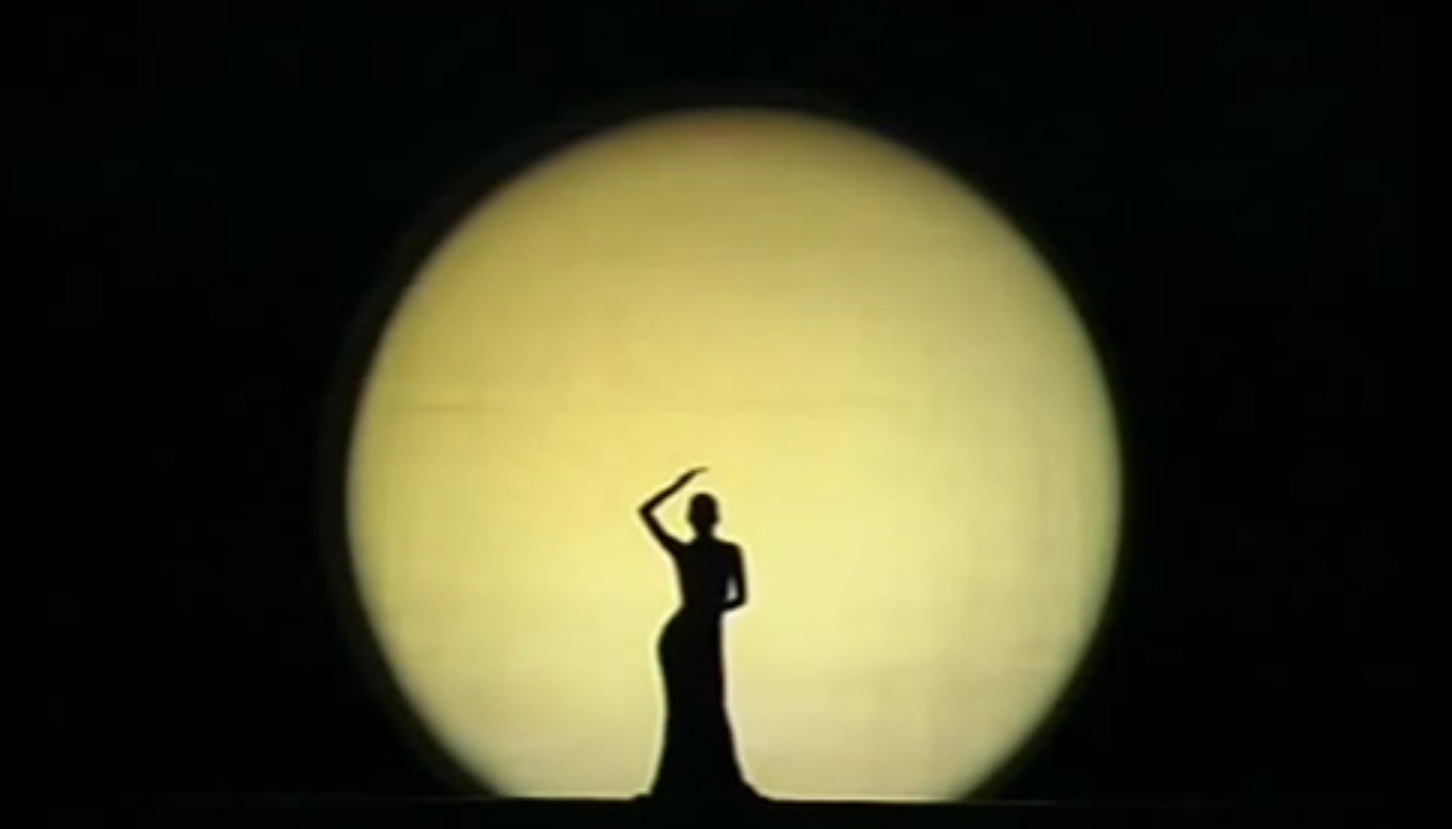The art of dance is primarily predetermined by its complex nature. Unlike music, or painting, where only one of the audience’s five – or, arguably, six – senses are used to evaluate the piece, dancing incorporates both music and visuals.
Therefore, to convey an original idea, a dance must incorporate a unique range of visuals and a perfect combination of music and choreography. Because of the astonishing use of shadows, the incredible plasticity of movements and a thought-provoking, both rhythmic and enigmatic music, Moon can be interpreted not only as a solo dance but a witty commentary on emotions and life in general.
The dance begins with a curtain being shifted on the side to reveal an ascending moon and a woman’s silhouette; along with the amazing visuals, the song starts, opening with a choir and then continued solely with the wind instruments and drums. The woman starts dancing and her shadow takes unbelievable shapes, reminding of a flock of birds, an animal, an old mountain – the list goes on as far as the audience’s imagination stretches.
It would be wrong to claim that all the aforementioned mages are represented impeccably – instead, the dancer’s movements only drop hints of certain objects or phenomena being mentioned.
For instance, the way the dancer clenches and unclenches her fingers (lionriver 3:47–3:49) may remind of tongues of flame to one person, yet ring a completely different bell for someone else. The show ends as the “moon” finally descends and the stage is enshrouded in darkness.
Defining the genre of the dance, however, is quite complicated, mostly because of the number of elements included in it. As it has been mentioned above, the dance incorporates the Chinese tradition and a slight postmodern element to it. It could be defined as a large stage ethnic primitive (大型原始太歌舞集) genre (Theatre Beijing para. 1) if it was not for the complexity of the hidden innuendoes that the interpretation of the dance suggests.
Therefore, it will be reasonable to define it as a large stage of ethnic dance drama. The movement was obviously used to tell a story; however, the plot of the story was rather loose, which presupposed that the audience was free to interpret it their own way.
The dance was truly outstanding. It made the audience forget that they were watching a staged performance – each time that LiPing “shape-shifted,” it felt as if people were transferred to an entirely new place. The audience did not gasp in awe – there was no time for it; mesmerized by LiPing’s gracious and mysterious movements, the spectators were literally entranced with the dance.

lionriver. “Moon – Solo Dance by Yang LiPing.” YouTube. 2007. Web.
Despite the fact that the idea of using a shadow theater is not new, together with the ethnic Chinese music, the original message and the amazing visuals, the use of this technique is fully justified.
More to the point, the unique dancing manner shows new ways of looking at the genre of the Chinese traditional music; Yang LiPing makes it clear that this kind of music has potential – more to the point, she shows that Chinese traditional music can actually render the emotions and ideas that are relatable for an average audience of all backgrounds and ethnicities.
A perfect reinvention of the genre, Moon breathes new life into the Chinese traditional dance.
Works Cited
lionriver. “Moon – Solo Dance by Yang LiPing.” YouTube. 2007. Web.
Theatre Beijing. The Peacock. 2013.